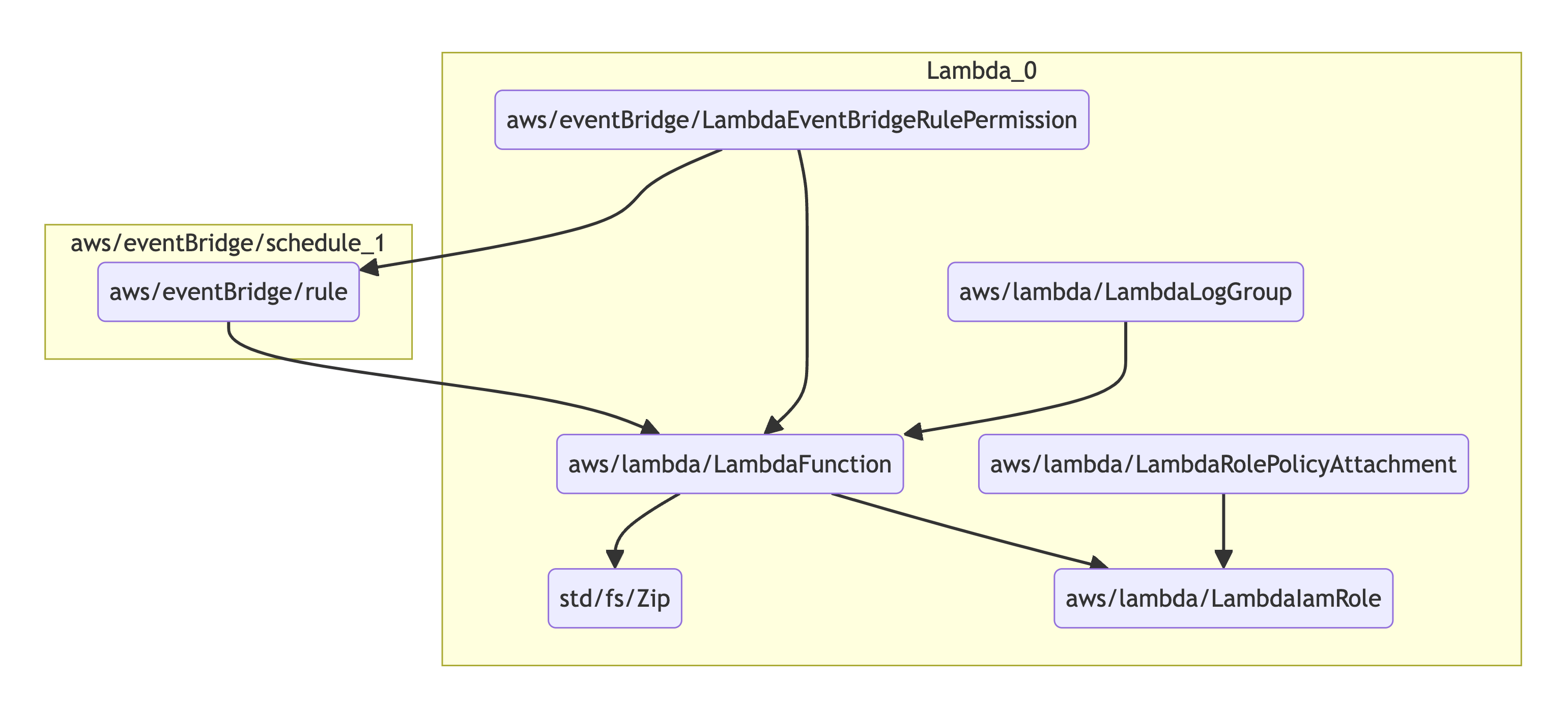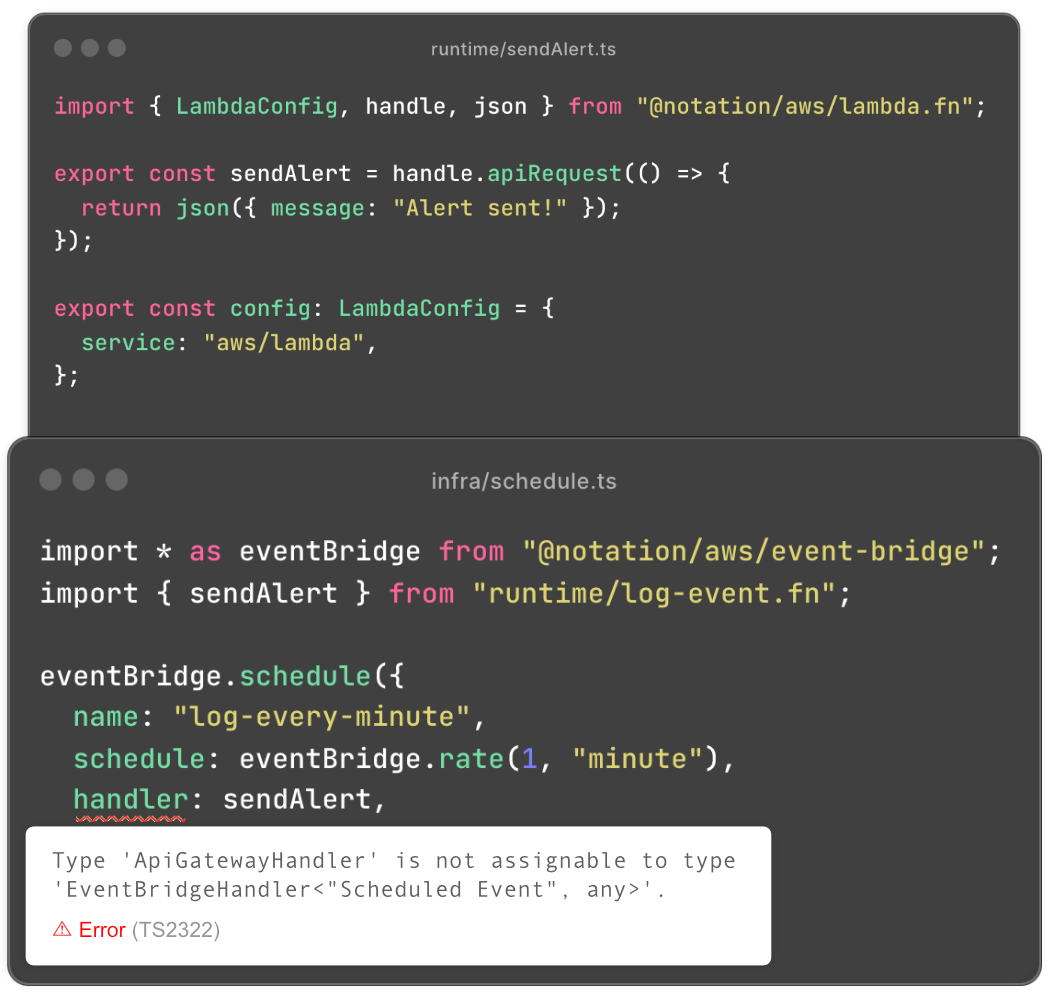JavaScript-native developer toolkit
for cloud-native deployments
for cloud-native deployments
We're building an open source serverless toolkit
designed for JavaScript's culture and ecosystem
designed for JavaScript's culture and ecosystem
Infra compiler
Idea to architecture in seconds
Notation compiles code that can be written intuitively into infrastructure that can't. Many of the quirks of cloud providers are encoded into the framework.
infra/schedule.ts
import * as eventBridge from "@notation/aws/event-bridge";
import { sendAlert } from "runtime/alert.fn";
eventBridge.schedule({
name: "alert-every-minute",
pattern: eventBridge.rate(1, "minute"),
handler: sendAlert,
});
Hot infra replacement
The cloud as your local dev environment
Quickly spin up ephemeral stacks on production infrastructure. Then watch them update in realtime as you code.
End-to-end types
Catch errors before you deploy to production
Notation provides well-designed types for every resource, and ensures compatibility between infrastructure and runtime modules.

Community
Stay connected. Get involved.
Feel welcome.
Subscribe
Be the first to find out when we release new features